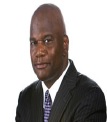
How Should Campus Leaders Address a Sexual Assault Issue with the Media?
By Ronald W. Holmes, Ph.D.
Vice President/ Education Editor
At the 2015 American Council on Education’s 97th Annual Meeting, a panel of leaders discussed the issue of sexual assault on college campuses. The panelists included: Cynthia Barnhart, chancellor of Massachusetts Institute of Technology; Jerry D. Blakemore, vice president and general counsel of Northern Illinois University; William J. Mullowney, vice president for policy and general counsel at Valencia College and Deborah F. Stanley, president of State University of New York at Oswego.
Deborah F. Stanley, president of State University of New York at Oswego.
While sexual assault has become a major focus on college campuses, the critical question to be asked is: How should campus leaders address a sexual assault issue with the media? Sexual assault is any involuntary sexual act in which an individual is physically forced or coerced to engage against his or her will or any non-consensual sexual touching of an individual. Sexual assault is a form of sexual violence including rape, kissing, groping or torture of the individual in a sexual manner.
President Stanley said that campus leaders have to change the culture through prevention, protection and education. She made it clear that sexual assault is not new to higher education , but things that we do as campus leaders have to change. For instance, Stanley said that we have to better understand the men and women who we serve to change the culture. We have to help them understand their responsibilities and what it means to become a truly passionate and functioning adult. What type of individual wants to have a sexual assault record and take this stigma in the world upon graduation. We also have to understand the culture that celebrates sexual behavior misconduct and understand the victims confronted by sexual assault.
, but things that we do as campus leaders have to change. For instance, Stanley said that we have to better understand the men and women who we serve to change the culture. We have to help them understand their responsibilities and what it means to become a truly passionate and functioning adult. What type of individual wants to have a sexual assault record and take this stigma in the world upon graduation. We also have to understand the culture that celebrates sexual behavior misconduct and understand the victims confronted by sexual assault.
In the event of a sexual assault, Stanley cited that campus leaders’ communication with the media should be very mindful and considerate of stakeholders affiliated with the campus environment and community. For instance, she said, “You might want to make a very strong statement to the media, but in reality you can’t really do such. If you do, you can’t rescind it which can be damaging” to all involved.
However, “You do have a responsibility to say something. On some instances, you probably should say to the media, you will be hearing from me shortly.” The reason is, “you have a greater responsibility to know what you are talking about such as how the issue coincides with the regulations and laws, as well as your ability to act on the particular circumstance. Speaking prematurely to the media might cause uninviting noise and harm to individuals and the community involved. You’re saying you don’t know anything about the issue” is insufficient too, said Stanley.
Other panelist agreed that communication with the media should be as thorough and accurate as possible. Barnhart, Mullowney and Blakemore respectively noted that campus leaders can be proactive in these sexual assault matters by being data driven through the use of campus surveys , having a full-time Title IX employee and having relevant policies and procedures in place along with establishing a positive relationship with community officials.
, having a full-time Title IX employee and having relevant policies and procedures in place along with establishing a positive relationship with community officials.
Dr. Ronald Holmes is the author of eight books, “Education Questions to be Answered,” “Current Issues and Answers in Education,” “How to Eradicate Hazing,” “Professional Career Paths” “Your Answers to Education Questions,” “How to revitalize the National Baptist Convention, USA, Inc.” “Completing the Dissertation: Tips, techniques and real-life experiences from Ph.D. graduates” and “Jacob’s Dream, A Story of Careers for Children.” He is publisher of “The Holmes Education Post,” an education focused Internet newspaper. Holmes is a former teacher, school administrator and district superintendent. He can be reached at rwh@theholmeseducationpost.com .








